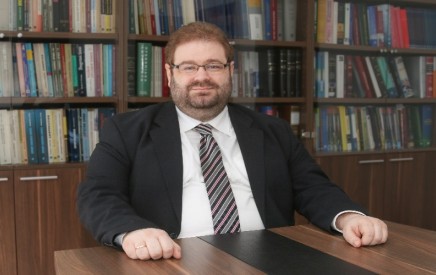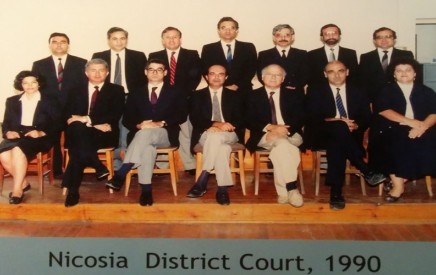The defamation on Social Media and the recent developments of C 18-18

The defamation on Social Media has completely different characteristics than the traditional means of defamation. The defamatory comment is written by amateurs, it can be seen and dispersed by a large number of people, and it can take the form of a photo or video, engraving its content to the memory of those who come across it. The impact it has on the personality, honour and reputation of a person is far greater than the impacts of the traditional means of defamation.
Theory suggests that Social Media must restrain themselves (the term used is “self-regulation”) in order to protect their users or third parties, whose reputation has been violated by their users. The determination of the terms that each Social Media shall use in order to protect their users from any potential defamation, bullying or other violations of rights, would definitely help, given that who would be better fit to filter and eliminate such violations, than the Social media administrator himself? But who could control and therefore contain the arbitrariness of Social Media, that nowadays has become a business worth millions? And what would the cost be for Social Media, that have become world wide webs with users all over the world, that express themselves with all kinds of languages and dialects?
It is worth noting that with the decision Delfi AS v Esthonia, 64569/09, 10/10/2013, of the ECHR, an obligation arises for the websites that allow comments, to self-regulate in order to protect rights and at the same time protect their properties against compensations. This is an important cost that websites, that choose to be interactive, have to take into account.
There is also a variety of English legislation that has convicted the social media for the violation of the right to personality. Also relevant is the interim decision of the District Court of Paphos on the Νεόφυτος άλλως “Nick” Γεωργίου κ.α. ν. Facebook INC, Action Number: 569/2015, dated 23/4/2015, in which an interim order was issued against the Social Media.
On the other hand and in regards to the traditional methods of dealing with defamation, a comment online can not only be seen by an large number of people as a result to the nature of the internet, but it can also be simultaneously saved in a format that if it is searched it can be discovered much later after it is posted.
As a result, if it is not dealt with promptly, the defamation of a person may follow him for a prolonged period of time, long after the publication of the offensive comment, and thus create a continuous and perpetual violation of his rights. Furthermore, such comment may come to the attention of people not aimed at originally by the publisher of the said comment. With simple means of search, such as the name of the publisher or different elements of the comment, the comment may be easily discovered and either become viral or even violate the personality of others. Furthermore, the spreading is even more intense with the republication of the comment from other people. Along these lines, the receivers of the comment can be people belonging in the circle of the third parties that republished the comment, who don’t know the original publisher.
An amateur making a defamatory comment has a greater responsibility than that of a professional due to the fact that a larger group of people may or will see his publication. However, a professional is better informed and educated on the dangers arising from such publication and can also receive legal advice. The amateur that publishes on social media doesn’t have the aforementioned at his disposal in order to predict the effect, confines and sometimes the defamation itself. Nonetheless, if we take into consideration that the most important factor in awarding damages is the amount of people that the defamatory publication has reached, an amateur is bound to receive more crippling damages or sentences than the professional.
On the 3/10/2019, the ECJ issued the decision in the case C‑18/18. It was not disputed that Facebook Ireland provides web hosting services in the meaning of article 14 of the directive 2000/31. The ECJ also decided that a court of an EU member may order a web hosting services provider to delete any saved data whose content is identical with a content previously ruled as illegal or obstruct the access to such information, regardless of the identity of the applicant storing them. The 2000/31 directive has been incorporated in the domestic law with the law 156(I)/2004. Similar to the article 14 of the Directive is the article 17 of the domestic law, which states among others that the carrier, meaning that the social media, are liable once they come across a comment that violates rights and do not withdraw the comment or make it inaccessible.
The data in the law of defamation change rapidly with the advancement of technology. Nowadays, social media are the prominent means of defamation and the cases involving such defamation are exceeding the traditional means of defamation. Even traditional methods of defamation, through newspapers or television, as a rule will be republished in the social media thus multiplying the receivers of such publications.
Based on all the above, a person whose right to personality or any other rights are being violated on social media, should act immediately. He should inform the social media network in regards to the violation and if he doesn’t receive a response, proceed to take all necessary legal actions to issue a court order to stop the violation. This is the only way to limit the range of the violation of his rights and therefore protect his fame and reputation.








